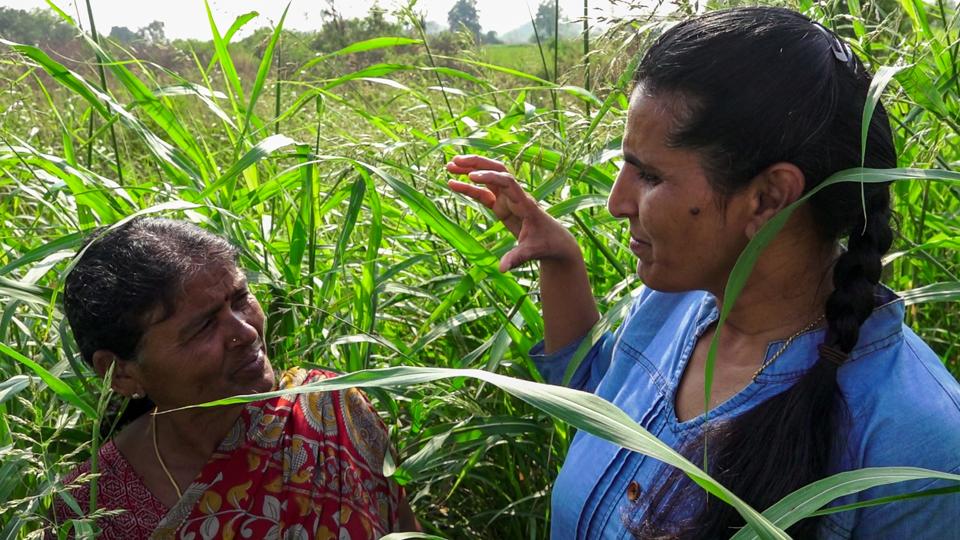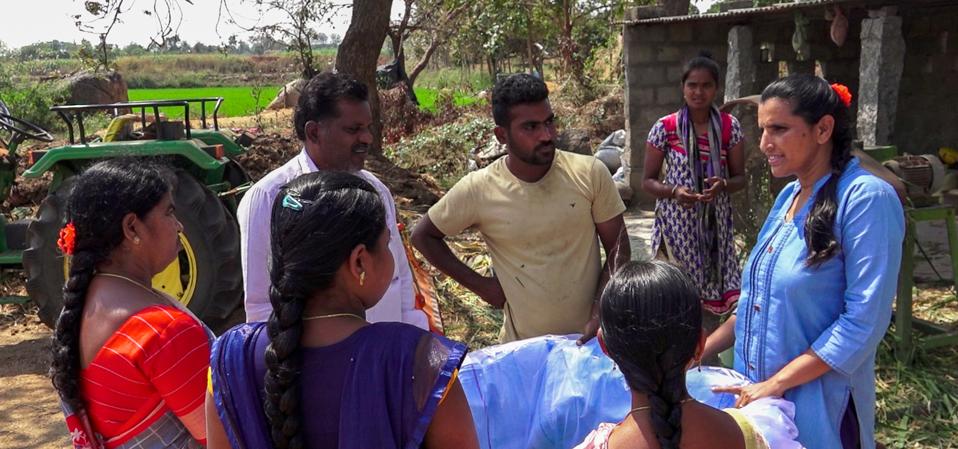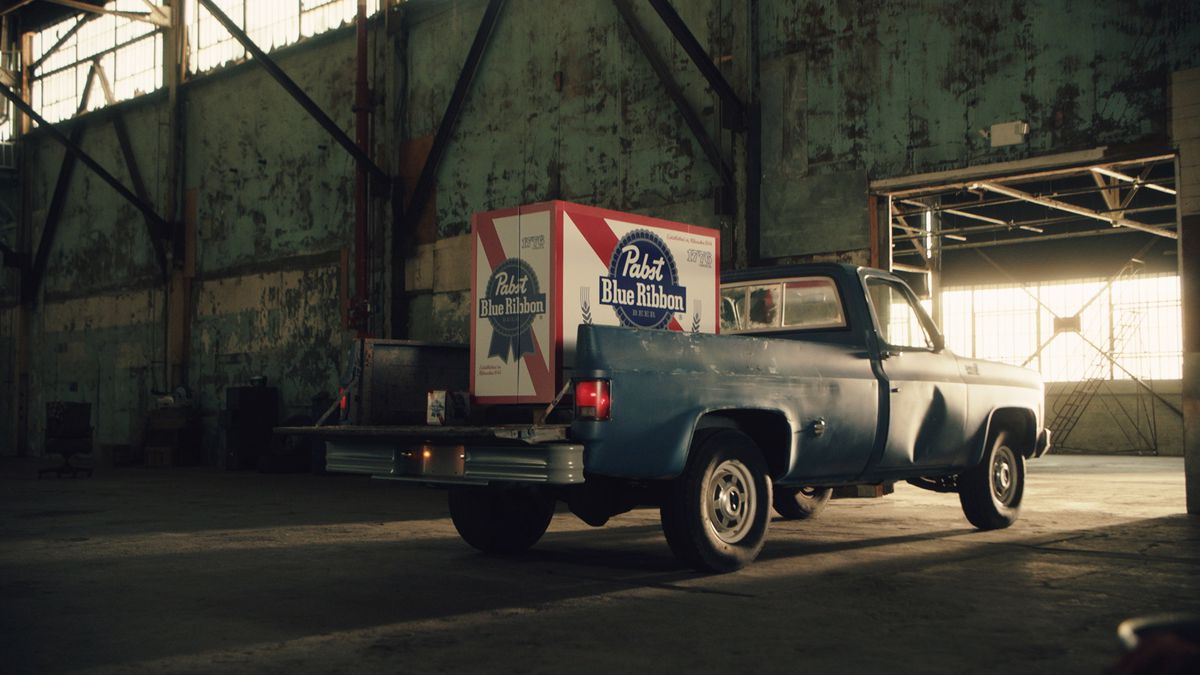
Thanammal Ravichandran (right) explaining the importance of the grass seed business at the ... [+]
DOUGLAS VARCHOLAs a child, agricultural scientist Thanammal Ravichandran learned how vital milk can be to rural livelihoods in India after her family lost their dairy animals to disease – but now she uses science and technology to help a women-run diary collective.
Ravichandran, a reseracher at the International Livestock Research Institute, in Hyderabad, India and a consultant to the Mulkanoor Women's Cooperative Dairy says India's dairy herds typically have low productivity and often it is the women who bear the bulk of the dairy labor without a matching share of the dairy income.
"As this particular dairy cooperative is all women membership in nature, the income from sale of milk is directly given to women," she said.
One of the most impactful innovations at the cooperative is the selection of the fodder, that is, the plants grown speficially to feed to live stock.
"Out of all fodder varieties, women preferred one variety of grass - COFS 29 - for its high biomass, which is easy to harvest by women as the leaves are much less spiky so there is less damage to their hands," she said, "The animals eat the fodder without wastage even without being because it has thin stems."
Just with this small change, Ravichandran says, women’s labour was reduced by two-thirds, and the men started helping women to carry fodder from the field to the cattle shed.
"When there is increased productivity and increased incomes, equality between men and women improves because there is less burden for men to earn additional income to take care of family for education, nutrition and other expenses" she said.
This isn't the first time Ravichandran has used science and technology to get better outcomes for farmers.
"I had an opportunity to work with MilkIT project implemented in Uttarakhand, in the Himalayan foothills, for enhancing livelihood of smallholder dairy production system," she said, "The MilkIT project made a significant impact on the livelihoods of these women through an innovation platform approach and introduced milk marketing and feeding innovations, which facilitated income opportunities for women as well as increasing productivity of dairy animals in that region."
Ravichandran says Innovation platforms (IP) are increasingly used in agricultural development to address complex issues, which require diverse actors to work jointly to identify constraints and implement solutions.
One of the innovations to emerge from that project were new, simple, women-friendly chaff cutters, because women were unable to operate the heavy, rusty, two-person the chaff cutters, provided by the government. Another change was to use water buffaloes instead of cattle, because buffalo are easier to handle.
"Newly established women-only dairy cooperatives enabled women to sell their excess milk and earn money that was spent for improving household nutrition and children’s education."

Thanammal Ravichandran (far right) and women from the Mulkanoor Women's Cooperative Dairy during ... [+]
Douglas VarcholRavichandran was born in a remote village in Tamilnadu, in the south of India.
"My parents were illiterate and depended upon 0.5 hectares of land, where they kept three buffaloes and two bullocks, but when I was seven years old, all our buffaloes died of an unknown disease, and as each buffalo died, a para-veterinarian came and told us it was a deadly disease from which they couldn’t save the animals." she said.
This gave Ravichandran the motivation to study to become a veterinarian and eventually she would eventually go on to gain a Masters in agricultural sciences in the tropics and subtropics from the University of Hohenheim in Germany, before coming back to India and becoming involved in dairy-based research.
Ravichandran isn't the only female scientist from the global south using her childhood experiences to drive her scientific career.
Colombian researcher Lina Quesada-Ocampo grew up visiting her family’s farm outside Bogota, Colombia, but is now an associate professor and vegetable pathology extension specialist at North Carolina State University, focusing on the diseases that devastate sweet potato, cucumber, watermelon, squash, pumpkin and zucchini.
August 03, 2020 at 01:00AM
https://ift.tt/31fjjv3
How Are Indian Women Using Milk And Tech For Better Lives? - Forbes
https://ift.tt/2XiyktG
Milk

No comments:
Post a Comment